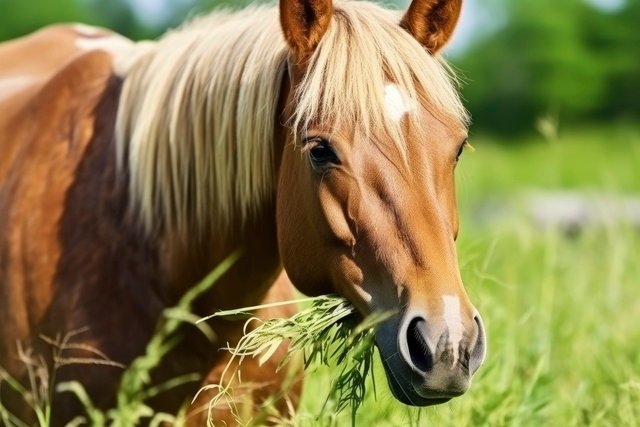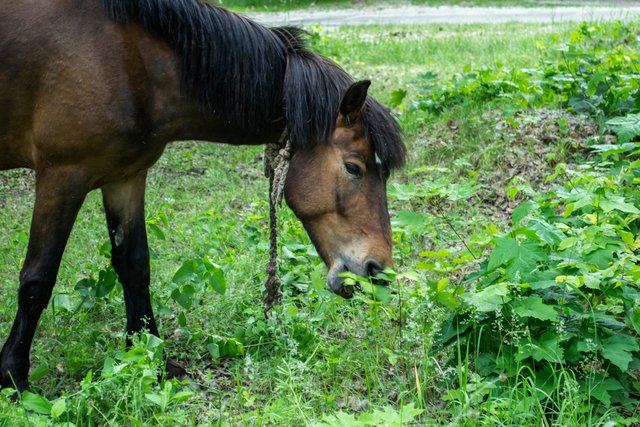Nutrition plays a crucial role in ensuring the health and well-being of horses. But can horses safely enjoy the crunchy green vegetable – celery?
In this informative post, we will investigate into the nutritional benefits of feeding celery to horses, helping horse owners make informed decisions about their equine friends’ diets.
Let’s explore the potential advantages of adding this nutritious snack to your horse’s feeding regimen. Read on to discover the answers!
Nutritional Value of Celery
To understand the nutritional benefits of feeding celery to horses, it’s imperative to know its vitamins and minerals content.
Celery is rich in vitamin K, folate, potassium, and antioxidants, which can contribute to overall health and well-being.
Fiber Content and Digestibility
Celery is also a good source of dietary fiber, which can support healthy digestion in horses.
The high fiber content in celery can aid in maintaining proper gut function and may help prevent digestive issues such as colic.
Horses require a diet high in fiber to mimic their natural grazing behavior. Celery’s fiber content can promote gut motility and prevent issues like colic or impaction.
When feeding celery to horses, it’s crucial to introduce it gradually and monitor their digestive response to ensure it agrees with their system.
Can Horses Eat Celery?
You may be wondering whether it’s safe to feed your horse celery. Celery is a crunchy, low-calorie vegetable that is safe for horses to eat in moderation. However, there are some factors to consider before adding celery to your horse’s diet.
Potential Benefits of Feeding Celery to Horses
Any potential benefits of feeding celery to horses include it being a good source of hydration due to its high water content.
Celery also contains imperative nutrients like vitamins A, K, and C, as well as minerals such as potassium.
Possible Risks and Precautions
Horses should not consume large quantities of celery due to the risk of choking, as the fibrous stalks can be difficult for them to chew properly. Additionally, excessive celery intake can lead to digestive upset in some horses.
While celery can provide some nutritional benefits to horses, it should be fed in moderation to avoid potential risks associated with choking and digestive issues.
You have to always introduce new foods slowly and monitor your horse for any adverse reactions when adding celery to their diet.
Celery as a Treat or Supplement
On introducing celery into a horse’s diet, start gradually to avoid digestive upsets. Begin by offering small pieces as treats to see if your horse enjoys it.
You can also mix celery with other feeds or vegetables like Carrots to make it more appealing.
Recommended Amounts and Feeding Guidelines
Into a horse’s diet, celery can be fed in moderation. As a treat or supplement, one or two stalks a day is sufficient. Monitor your horse for any signs of digestive issues when introducing new foods.
Celery is a safe and nutritious addition to your horse’s diet, providing hydration, fiber, and crucial vitamins. However, moderation is key, as excessive amounts can lead to digestive upset.
Always consult with your veterinarian or equine nutritionist to ensure a balanced diet for your horse.
The Role of Celery in Maintaining Horse Health
With its high fiber content, celery can aid in promoting healthy digestion in horses. The crunchiness of celery also helps in naturally cleaning the teeth, supporting oral health in horses.
Reducing Inflammation and Oxidative Stress
Celery contains antioxidants such as vitamin C and flavonoids that can help reduce inflammation and oxidative stress in horses.
It can be particularly beneficial for older horses or those prone to inflammatory conditions.
Common Misconceptions about Feeding Celery to Horses
Despite being a healthy treat, there are some misconceptions about feeding celery to horses:
Celery Is a Complete Diet
Some horse owners might believe that celery alone can meet all the nutritional needs of a horse. This is a misconception. While celery can be a healthy snack, it lacks the necessary calories, proteins, and essential nutrients that a horse needs from its primary diet, which typically consists of hay, grains, and specialized feeds.
Celery Is Toxic to Horses
Another common misconception is that celery is toxic to horses. This is false. Celery is generally safe for horses to consume in moderation. However, it should be given as a treat rather than a staple in their diet.
Celery Causes Colic
Some believe that feeding celery can cause colic in horses. While any sudden change in diet or feeding excessive amounts of any treat can potentially upset a horse’s digestive system, moderate amounts of celery are unlikely to cause colic. It’s important to introduce any new food gradually.
Horses Can’t Digest Celery Properly
There is a belief that horses can’t properly digest celery due to its fibrous nature. In reality, horses are herbivores with a digestive system designed to handle fibrous plant material. Celery, when given in reasonable amounts, can be digested properly by horses.
Celery Is a Good Hydration Source
Some horse owners may think that because celery has high water content, it can serve as a significant hydration source for horses.
While celery does contain water, it should not be relied upon for hydration. Horses require a substantial amount of fresh water daily, far more than what they could obtain from eating celery.
All Horses Love Celery
It’s a common belief that all horses enjoy eating celery. In truth, individual preferences vary. Some horses might love celery, while others may not show any interest in it. It’s always best to offer a small amount first to see if the horse likes it.
By clearing up these misconceptions, horse owners can make better decisions about incorporating celery into their horses’ diets, making sure they do so safely and effectively.
Special Considerations for Feeding Celery to Horses

Age, Breed, and Health Status Factors
Now, when considering feeding celery to horses, it is important to take into account their age, breed, and current health status.
Factors such as a horse’s age, breed-specific dietary needs, and any existing health conditions should be considered before introducing celery into their diet.
- Older horses may have dental issues that make chewing celery difficult.
- Breeds known for metabolic issues may need careful monitoring of their vegetable intake.
- Horses with digestive sensitivities may not tolerate celery well.
Perceiving how each individual horse may react to celery is key in ensuring their overall well-being and digestive health.
Interactions with Medications and Other Foods
Health status plays a crucial role in determining how celery interacts with medications or other foods in a horse’s diet.
It is crucial to consult with a veterinarian before incorporating celery into a horse’s diet, especially if the horse is on any medications.
Certain medications may interact with compounds found in celery, affecting their effectiveness or causing adverse reactions.
To wrap up
So, in conclusion, it is safe for horses to enjoy celery in moderation as a healthy treat. Celery offers a variety of nutritional benefits and can be a tasty addition to their diet.
As always, it’s imperative to consult with a veterinarian or equine nutritionist before making any significant changes to your horse’s diet.
By understanding the nutritional benefits of feeding celery to horses, you can promote their overall health and well-being.
